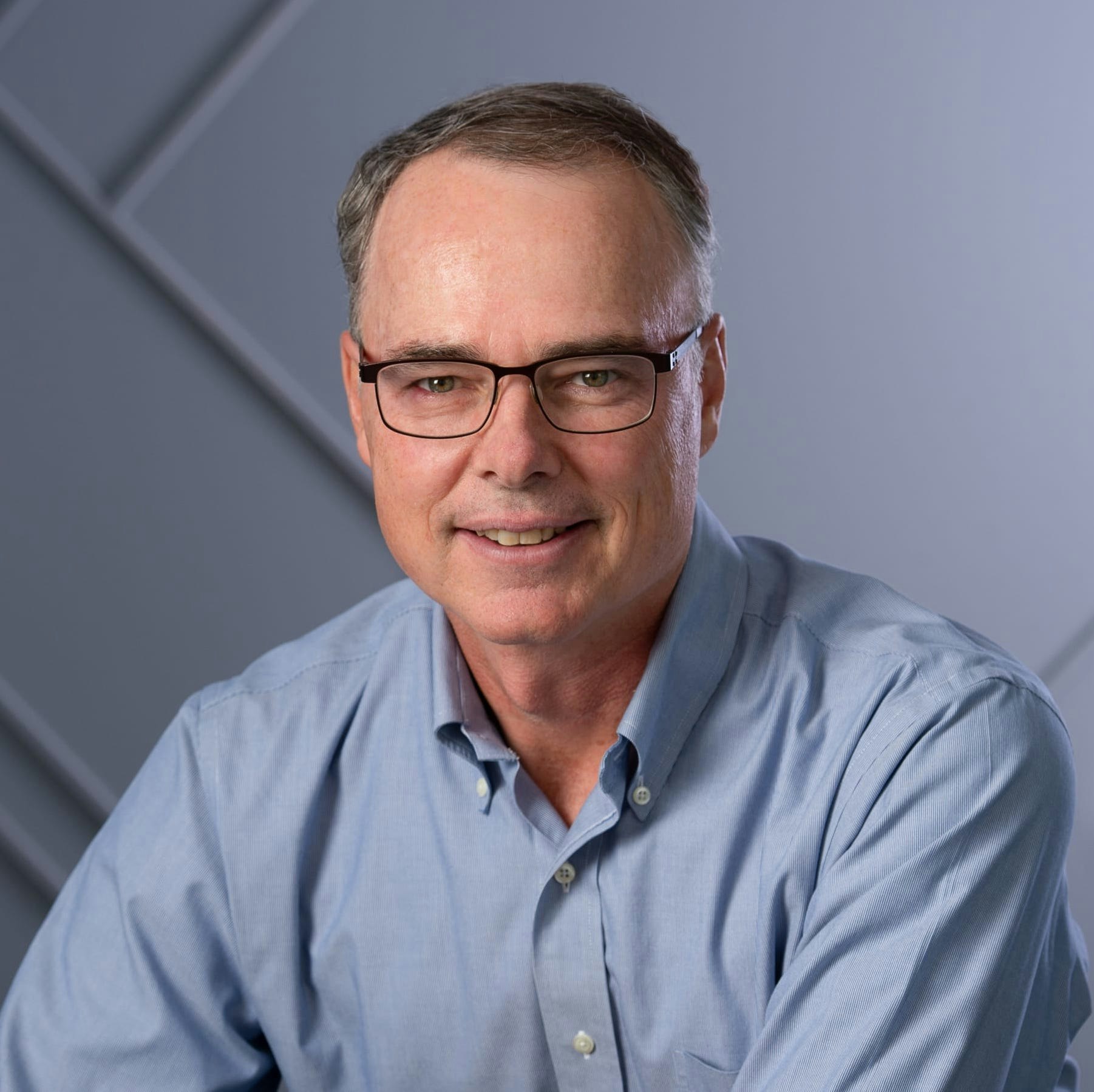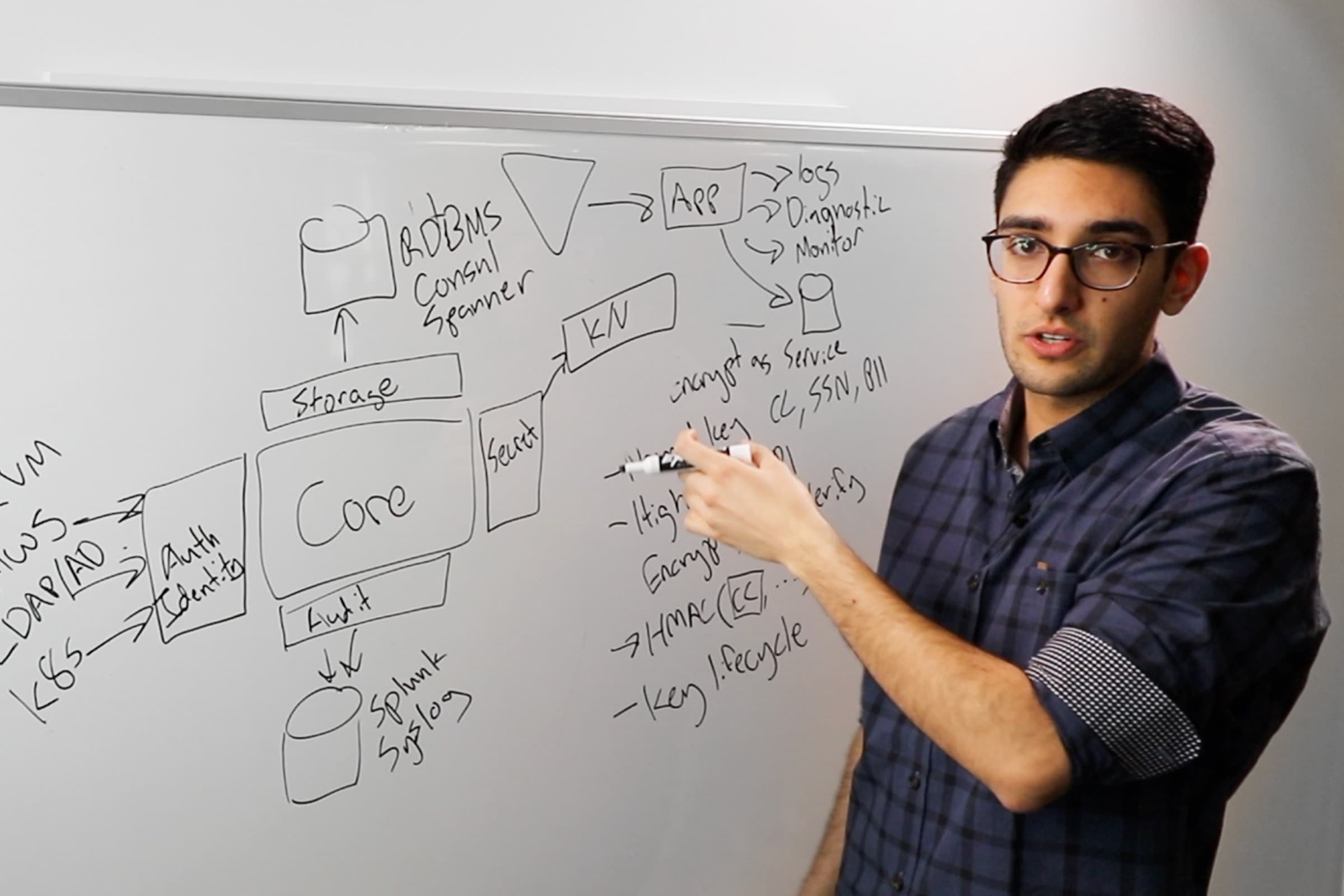HashiConf 2017: A year of huge advances
HashiCorp CEO Dave McJannet briefs us on HashiCorp’s 2017 developments and looks to the future.
Dave describes some aggressive investment:
Product/engineering teams—150 releases in 12 months (more than doubling the rate, and we continue to accelerate)
Support/success teams—to better help customers moving from traditional DCs to cloud
Local teams—building out offices all over the world to be where our customers are
The product announcements at HashiConf are right across the portfolio. Some brief highlights:
Terraform Module Register
Terraform Enterprise adds collaboration and governance
Kubernetes support in Vault
Sentinel policy as code—governance layer across the stack
But while there's huge progress and change, our core philosophies have stayed constant and remain as our solid underpinnings:
Focus on workflows, not on technology
Automation through codification: We believe immutability is the best way to cope with scale
Openness and extensibility: No two customers are the same!
Speaker
 Dave McJannetChief Executive Officer, HashiCorp
Dave McJannetChief Executive Officer, HashiCorp
Transcript
Thank you Mitchell and welcome from me. It's as Mitchell mentioned it's actually our third HashiConf, but what he didn't mention is it's almost exactly five years since the founding of HashiCorp itself. So the velocity of adoption of our products has actually been kind of amazing for a relatively short period of time to see the number of people to put up their hands and we asked who was running this in production? It's a big number, but what we really saw over the last 24 months is almost sort of a step function shift in adoption. Not just by end users, but also by partner ecosystem around us and you saw that from some of the announcements that came out today where our products are being used not just by some of the largest entities in the globe to run their own infrastructure, but also increasingly underpinning sort of foundational elements of the cloud ecosystem which is really really fun for us.
It's also something we take super seriously. As a company, we've been for the last 12 months investing super aggressively. We've been really investing across basically three vectors. One of them is around the product engineering organization itself where our engineering organization as you can see from 150 releases that we put out over the last 12 months of our core product portfolio has more than doubled in the last 12 months. It'll continue to expand if not double again over the next 12 to 18 months.
Secondarily, we recognize that a lot of our users are sort of navigating this transition from a relatively traditional way of running infrastructure to a more cloud oriented approach for running infrastructure. It may not always be on cloud infrastructure, but philosophically it's a slightly different way of running infrastructure. So we've invested really really heavily in our support and success organization to help customers navigate that transition.
The third and this has been a really big push for us is we recognize that we need to be with technical expertise where our users are. So we, over the last 12 months, have established a presence really all over the globe. We now have technical resources on the ground on the East Coast, on the West Coast, in the Central, in the Federal area. I was in London last week. I believe we have I believe eight people in the UK today. We have teams in Japan and Australia. We also have customers in Korea. That is something you'll see us continue to od because this in our view is sort of a generational shift of how infrastructure is deployed and run. So we need to be where our customers are, not just sitting remotely from our offices here.
I think, actually a good example of this, it caught my attention that the London meetup group alone for HashiCorp is over 1500 people. So it's not even affiliated with us necessarily, but it gives you a sense for this stuff is used everywhere.
It's really the engineering organization and investments that have allowed us to make the announcements that we made today. I just wanted to play them back because as you see, we believe strongly that there are four essential elements of infrastructure, right? There's a provisioning layer. There's a security layer. There's a run time layer and there's the need to connect everything together.
So what we announced today was actually updates across that entire portfolio. On the [Terraform 00:03:08] side, we announced the Terraform module registry which as I can tell on Twitter and our Hacker news is already super popular. I think it's going to put some pressure on our operational teams to match it. Also, the newer version of Terraform Enterprise which adds collaboration and governance capabilities to the running of Terraform in a large organization as Mitchell identified.
Secondarily, we announced Vault Curinety support which has been a real request. We realize there's a lot of heterogeneity across infrastructure stacks and it's important to us that we enable people to run the technologies of their choice. Curbinize has been an important one for us. [inaudible 00:03:42] are huge and then we introduced Sentinel as a really a sort of a governance model to apply across all four layers of our stack.
While the company's changed a lot over the last, let's call it 24 months, the philosophies that underpin how we think about the world really haven't, right? Mitchell and I started this journey with the view that enterprises are heterogenous things. Yesterday it was virtual machines. Today it's containers. Tomorrow it'll be something else. So what we do instead is we focus on the workflows, not the technologies.
You see that in our approaching philosophy with our respect to Terraform where not only has the provider ecosystem expanded as it relates to support for more and more cloud infrastructures. For example, you saw some of the ones today but basically across any infrastructure type that you might choose to provision, there's a Terraform for writer support. But more interesting to me actually is there are now more than 70 Terraform providers. We have a queue that we're certifying another 10 behind that because as you all in the room have used Terraform provision infrastructure to your cloud partners, the ISP vendors that you work with and must be included in that provisioning experience, have stepped up and created Terraform providers to allow their products to be provisioned as part of that single experience. It is that focus on the workflows, not the technologies which is just underpins our whole philosophical approach.
The second core principals are around automation through codification. That's a belief in immutability and the need to codify given the scale of the environments we all operate. Sentinel is a good example of how we are now applying the governance model for distributor infrastructure through codification. Sentinel also includes, I should add, the ability to extend through the plugin mechanism to whatever back end system you may want to connect to that experience. So the philosophy around openness and extensibility recognizing that you need to be able to extend our products to your specific environments which are highly differentiated, as any large company is. Those remain the underpinnings for how we think about philosophically our approach.


